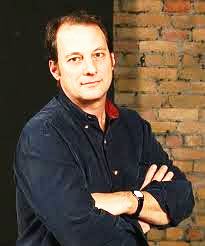

In “Last Best Hope,” Packer delves into how Americans of all backgrounds define freedom, and how we can use the underlying passion for equality to lead us toward a more unified, progressive nation. Today there is a new crisis in American political life, and Packer helps us see where it came from and what we need to do next.” “When Lincoln called America the world’s ‘last best hope’ for democracy, the republic was in the midst of its greatest constitutional crisis. “Packer is a journalist and author with a wide range of interests and a sharp eye for telling details,” said Robert Strong, William Lyne Wilson Professor in Political Economy.
#George packer free
This talk is free and open to the public*.

George Packer, staff writer for The Atlantic and author of “The Unwinding” and “Last Best Hope ,” will speak at Washington and Lee University on Thursday, Feb. ~ Robert Strong, William Lyne Wilson Professor in Political Economy “Today there is a new crisis in American political life, and Packer helps us see where it came from and what we need to do next.” ‘Last Best Hope’ Author George Packer to Speak at W&L Packer offers fresh insights into how Americans can use an underlying passion for equality to lead us toward a more unified, progressive nation. He lives in Brooklyn, NY.Search Feature Stories Campus Events All Stories Stories by Discipline His most recent book, The Unwinding: An Inner History of the New America, won the National Book Award. He was a Guggenheim Fellow and has taught writing at Harvard, Bennington, and Columbia. His book The Assassins’ Gate: America in Iraq was named one of the ten best books of 2005 by the New York Times, was a finalist for the Pulitzer Prize, and won the New York Public Library’s Helen Bernstein Book Award. He has contributed numerous articles, essays, and reviews to The New York Times Magazine, Mother Jones, Harper’s, and other publications. George Packer has been a New Yorker staff writer since 2003. Using a fictional narrator to tell a strictly factual account, drawing on exclusive access to Holbrooke’s rich personal papers, the book provides an intimate character study of idealism and egotism, humanitarian purpose and self-blindness, to trace the waxing and waning of America's democratic health and global leadership during the later years of what’s called the American Century.

This book recounts the life of the American diplomat Richard Holbrooke and, especially, the three wars in which he was deeply involved-Vietnam at the start of his career, Bosnia at its height, and Afghanistan at its end. It was also a great vulnerability, and finally, it was fatal. Where did it come from, that blind spot behind his eyes that masked his inner life? It was a great advantage over the rest of us, because the propulsion from idea into action was never broken by self-scrutiny. “How do you think you affect Obama?” Holbrooke had nothing to say. Les Gelb, Holbrooke’s friend of forty-five years and daily recipient of multiple phone calls, would butt into a monologue and ask, “What’s Obama like?” Holbrooke would give a brilliant analysis of the President. Maybe that was something he couldn’t afford. He might have had to think about himself. By dying he stood up a hundred people, including me. His ambition, his loyalty, his cruelty, his fragility, his betrayals, his wounds, his wives, his girlfriends, his sons, his lunches. There’s too much to say and it all comes crowding in at once. I’m trying to think what to tell you, now that you have me talking. “What do you think he meant by that?” Yes, his curly hair never obeyed the comb, and his suit always looked rumpled, and he couldn’t stay off the phone or TV, and he kept losing things, and he ate as much food as fast as he could, once slicing open the tip of his nose on a cherrystone clamshell and bleeding through several cloth napkins-yes, he was in almost every way a disorderly presence. Once, in the 1980s, he was walking down Madison Avenue when an acquaintance passed him and called out: “How are you, Dick?” Holbrooke watched the man go by, then turned to his companion. The ceaseless sizing up told of a manic spirit churning somewhere within the low voice and languid limbs. I never knew anyone quicker to size up a room, an adversary, a newspaper article, a set of variables in a complex situation-even his own imminent death. Like one-way mirrors, they looked outward, not inward. His eyes captured nearly everything and gave almost nothing away. The light in his dilated pupils told you that his intelligence was always awake and working. From Our Man: Richard Holbrooke and the End of the American Century:


 0 kommentar(er)
0 kommentar(er)
